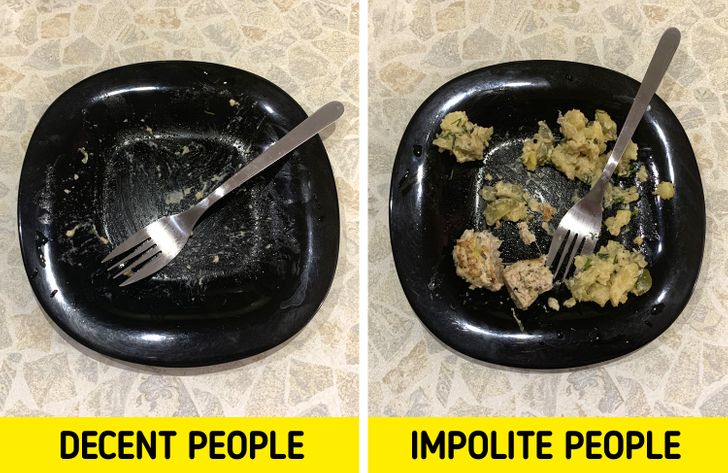My Mother-in-Law Devoured Our $2000 Wedding Cake, So I Iced Her With Sweet Revenge

Every parent wants a better life for their children and tries to teach them what they themselves consider to be right. Unfortunately, adults sometimes make mistakes and encourage completely unnecessary and even harmful attitudes in their offspring.
The Bright Side editorial team sincerely hopes that you’ve managed to avoid the following problems.
Happiness is as natural as pain, joy, sadness, laughter, and everything else, so it’s available to absolutely anyone. But often, people think that they haven’t yet worked on their lives hard enough, so they don’t deserve anything good. They then involuntarily start to sabotage their own attempts to become happier.
The first thing to do is to get rid of some myths, like that money brings happiness; happiness gets lower with age; some people are happier than others and nothing can be done about it; or that happiness requires a strong, healthy relationship with a loved one.
The second thing is to learn how to feel happy here and now. To do this, it’s enough to follow simple rules — sincerely thank other people for their help, invest time in communicating with happy people, give compliments, rejoice in the luck of others, and enjoy every moment of your life. Remember, you can feel happy even if you’re just watching the wind sway foliage in the trees.
A respectable age is not at all a synonym for high intelligence, so it’s not always worth listening to the advice of older colleagues or relatives. Of course, this should be done in a polite manner, since older age deserves respect. But respect and obedience are completely different things.
The main problem is that an obedient child will grow up into an obedient adult. Such a person is an excellent executor, but they’re unlikely to be able to make their own decisions. It’s highly likely that they will be pushed around and used, and they won’t be able to stand up for themselves because they’re used to obeying.
Unfortunately, our world is often unfair. In real life, the rule, “Be kind to people and they will be kind to you,” rarely works in every situation.
A child should know this from childhood, as they will somehow face this problem in adulthood. The sooner a little person learns that unpleasant things happen in the world, even to nice people, the easier life will be for them later.
Injustice will be everywhere — a man earned a promotion by honest labor but his boss’s son got it; the hurricane destroyed the house of the neighbor on the right while the one of the left remained unharmed; and so on.
The child should understand that there will be many such unjust things in life, and they need to learn to accept and overcome them.
You’ve probably heard stories about men who live alone and can’t even cook themselves fried eggs or boil dumplings. This problem stems from childhood — parents teach their children that a woman should cook and that a man must be able to do work with his hands, like fix and build things.
It’s high time to perceive both boys and girls as ordinary people who need basic survival skills. Everyone, regardless of their gender, should be able to clean their living space and know how to do basic cooking to keep themselves nourished.
Being “normal,” for many parents, means a number of different things, like using the right hand instead of the left one; wearing clothes that are considered decent and appropriate; having hobbies that correspond to gender or age; and much more.
And while determining what being “normal” is, adults are guided, as a rule, by how other children they know look and behave. You were probably compared to someone in your childhood at least once — the neighbor from the fifth floor who had only A’s in math or your cousin who mastered ballroom dancing, tennis, and singing. Because of such comparisons and the desire to ensure their child meets “average” standards, parents literally destroy their uniqueness, even though everyone is an individual.
The only valid comparison is the one you make to yourself. If a year ago, a child could read 20 words per minute, and today they read 40 words, they’re doing great, even if everyone else has been reading 50 words per minute for a long time.

Forcing a child to eat a whole plate of food if they don’t want it is harmful. It’s clear that the desire to control the quantity and quality of food happens because parents want to make sure the child is healthy, however, this can lead to a whole bunch of problems from overeating to eating favorite foods in secret.
A person, even if they’re little, should be allowed to feel when they need to eat, otherwise, they’ll lose their feelings of hunger and satiety and may gain excess weight. Blackmail techniques, like saying, “Eat some broccoli and I’ll give you a cookie,” usually lead to the same dire results.
Many people get scared if a child eats a whole plate of meat for lunch and chews only on bread at dinner, and out of fear, they’ll try to shove “normal” food into the unfortunate child’s mouth. But for children, a sudden change in taste preferences and the occasional loss of appetite are both normal.
Avoiding conflict is not the best way to solve problems. Every child should know what to do if they’re caught in a disagreement with someone, especially if it’s with their peers. This knowledge will have a great impact on their adult life since we face controversial situations almost every day.
Of course, we in no way suggest teaching children how to fight. The best way to solve the problem is to reach a compromise with the opponent.
From childhood, we’re taught that luxury goods are markers of success — like large apartments, summer cottages, private pools, cool devices, cars, and so on. Although, in reality, their presence only means that its owner has money for “toys,” and some people even take loans out to buy these things.
Even though people around them still automatically think that a person with luxury goods has succeeded in life, everyone should have their own understanding of success. Some people dream of having a strong family, others want a raise at work, and some people just like to hitchhike around the world and not own anything at all.
The most important thing to do is not lie to yourself. Do you really want to be successful or do you want everyone around you to think that you’re successful?
Did you learn something as a child that hinders you in adulthood?











